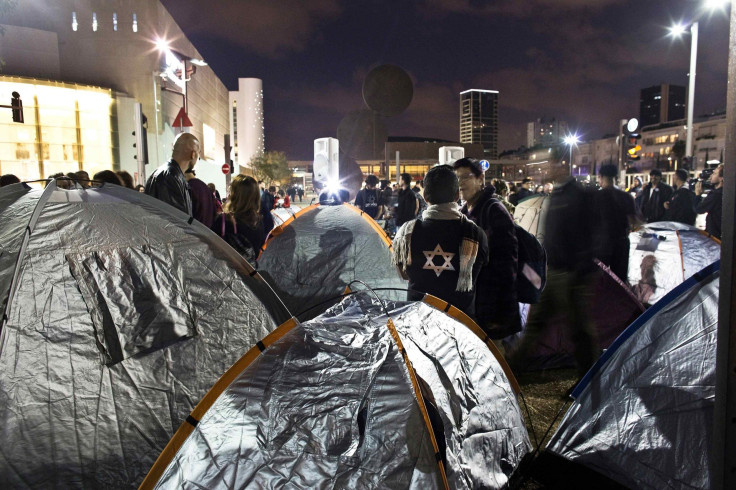Israel Elections 2015: Social And Economic Issues, Not Iran, Dominate Political Race

While Israel’s upcoming election has been widely seen as a referendum on the performance of Prime Minister Benjamin Netanyahu, opposition parties across the political spectrum have also made a point of using the tightly contested race to highlight socio-economic issues they want addressed under a future government.
Israeli voters are most concerned about housing prices and the cost of living, according to Reuters, as evidenced by the issues that dominated the recent political debate among eight party leaders ahead of the March 17 election. Netanyahu, meanwhile, has primarily focused on security issues during his re-election campaign.
A state report on Israel’s housing crisis released late last month placed the blame for skyrocketing housing (including rentals) costs squarely on Netanyahu’s Likud government, the Times of Israel reported. Political gridlock and bureaucracy were cited as factors contributing to housing shortages that have driven up prices as much as 55 percent between 2008 and 2013.
Housing has been a charged issue in Israeli politics since 2011, when young Israelis in Tel Aviv staged a sit-in that led to massive protests in the country, according to the Christian Science Monitor. Hundreds of thousands of people took part in the protests, which attracted Israelis of all political stripes in a movement that has left Likud on the defensive ever since.
Netanyahu’s biggest political rivals in the upcoming election, the Zionist Union coalition headed by former Labor leader Isaac Herzog, has pledged to make 300,000 apartments available while subsidizing housing by providing opportunities for partial ownership through rent payments. The party has also promised to lower the costs of healthcare, education and other basic goods.
The Zionist Union’s platform may have helped it gain some traction against Netanyahu, with polls released Wednesday showing rising support for the opposition faction, which is now projected to have an advantage of three to four parliamentary seats after the election. As opposition parties have pushed their commitment to domestic social and economic issues, they’ve also criticized the prime minister for his determination to almost singularly focus on the threat posed by Iran and ongoing international negotiations over its nuclear program.
Netanyahu’s controversial decision to address U.S. Congress on the issue last week, in the face of objections by the White House, was also criticized by some of his domestic political rivals as an unnecessary provocation of Israel’s most important international ally. A Gallup poll released Wednesday shows that Americans have responded negatively to Netanyahu’s speech and now view the Israeli leader in a more negative light, with only 38 percent having a favorable view of him, down from 45 percent prior to his congressional address.
The prime minister may be out of sync with voters because of the emphasis he has placed on national security issues over socioeconomic ones, but Iran still remains a bigger issue for the Israeli public than the deadlocked conflict with the Palestinians, which has received little attention during this election campaign. During last month’s 90-minute political debate between eight different party leaders, the word “peace” was mentioned only five times, three of those mentions by the only Arab candidate taking part, the Joint Arab List’s Ayman Odeh, Reuters noted.
Odeh’s party is the first alliance between the country’s four Arab parties and is expected to become the third-largest faction in parliament. But even the Joint Arab List has focused on citizens' socio-economic concerns more than negotiations toward a two-state solution, a move that highlights the lessened priority around the longtime issue in Israel’s political arena.
© Copyright IBTimes 2024. All rights reserved.






















